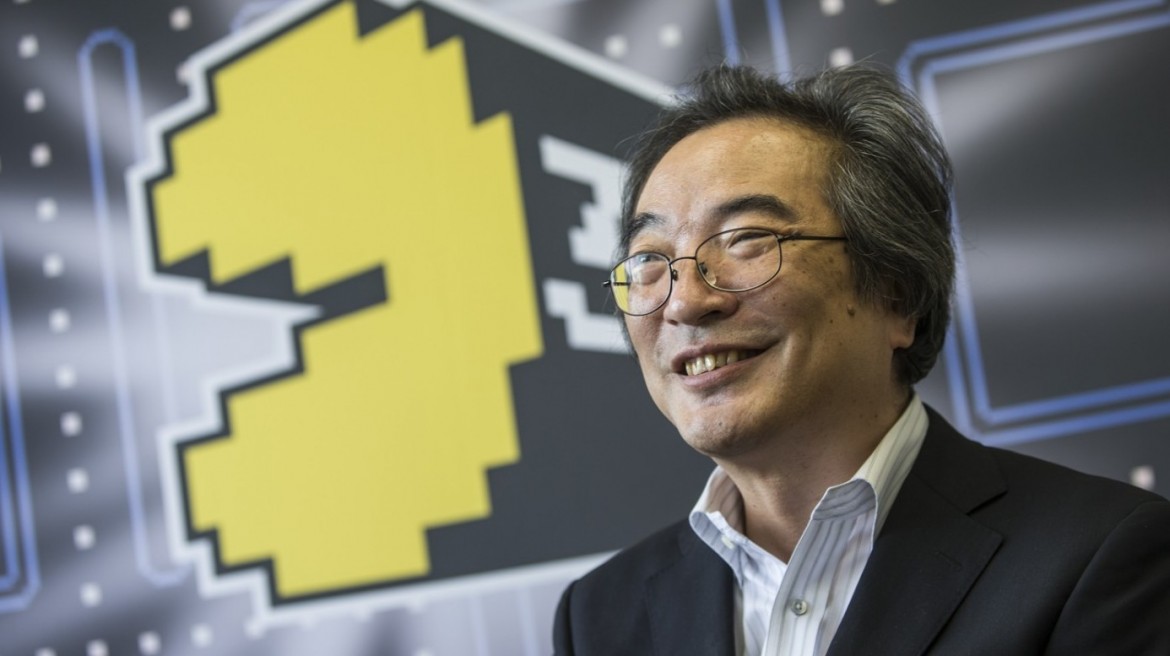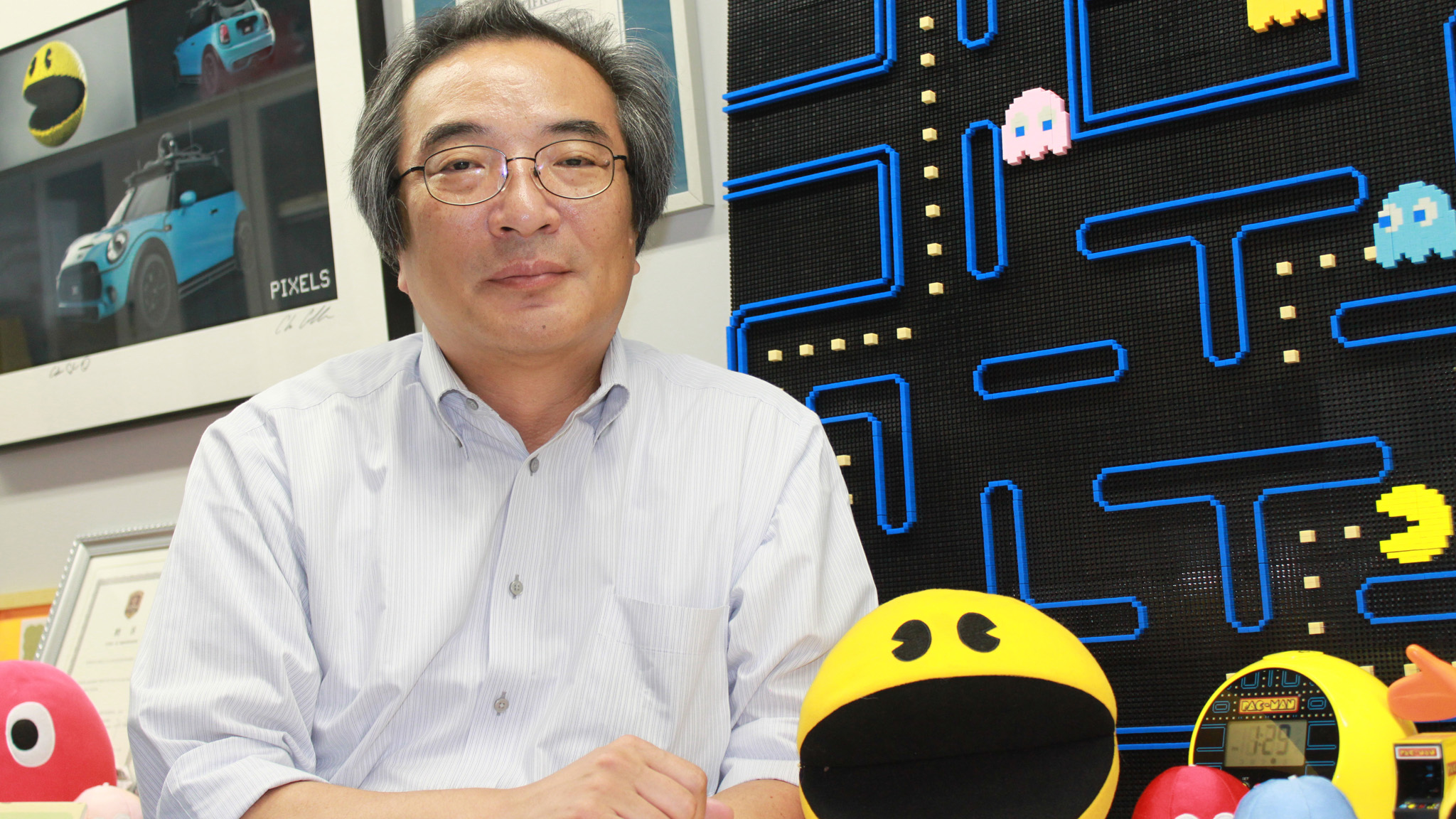What if a single video game could redefine an entire industry and capture the hearts of millions? The story of Toru Iwatani and the creation of Pac-Man is precisely that: a tale of innovation, cultural impact, and enduring legacy.
Born in Tokyo, Japan, on January 25, 1955, Toru Iwatani's journey began long before he became a household name. His influence, however, echoes across the decades, shaping how we perceive and interact with video games even today. Before the creation of the iconic game, Namco had acquired the rights to distribute several Atari, Inc. games in Japan, gaining traction in the market with titles like Breakout. This set the stage for Iwatani to make his mark in the world of gaming.
| Attribute | Details |
|---|---|
| Full Name | Toru Iwatani |
| Date of Birth | January 25, 1955 |
| Place of Birth | Tokyo, Japan |
| Occupation | Video Game Designer and Producer |
| Notable Work | Pac-Man |
| Employer | Namco |
| Education | Osaka University of Arts, Tokyo Polytechnic University (Teaching) |
| Key Contributions | Concept, character design, and overall gameplay of Pac-Man |
| Influence | Revolutionized arcade games, influenced gaming culture, and design |
| Legacy | A cultural icon with numerous sequels, adaptations, and enduring popularity |
| Reference | Wikipedia - Toru Iwatani |
In 1977, at the age of 22, Iwatani joined Namco, a Japanese video game publisher. This marked the beginning of his career, a career that would eventually redefine the arcade landscape. Before he joined, Namco had already been making inroads into the market. This acquisition gave them the necessary foothold to introduce and distribute numerous Atari games, including Breakout, throughout the country.
- Jimmy Kimmel Ratings Latest Insights Chart Updates
- Selena Gomezs Family Exploring Her Sisters Potential Motherhood
The genesis of Pac-Man stemmed from a desire to create a game that would appeal to a broader audience, especially women, who were reportedly underrepresented in the arcade scene at the time. The prevailing games of the era were largely violent, and Iwatani envisioned something different. He wanted a game that was engaging, fun, and accessible. Thus, the concept of Pac-Man began to take shape.
Iwatani designed the characters and meticulously crafted the game's overall concept and gameplay. His vision was remarkably simple: a maze, a central character (originally called Puck-Man), ghosts, and pellets. The goal was straightforward: navigate the maze, consume the pellets, and avoid the ghosts. However, the genius of Pac-Man lay in its nuanced design and addictive mechanics.
The design elements of Pac-Man were meticulously thought out. Iwatani himself was instrumental in developing the game, from the initial concepts to the final touches. The character of Pac-Man, a yellow, pizza-shaped figure, became an immediate symbol of the game. The ghosts, each with their own unique personalities and movement patterns, added a layer of complexity and challenge. The mazes themselves, with their intricate pathways and power-ups, provided a dynamic and engaging environment.
- Tyria Moore Today What Happened To Aileen Wuornos Partner
- Dancing With The Stars Judges 2025 Whos Returning New Faces
The power-ups within the game were another stroke of genius. The energizers allowed Pac-Man to temporarily turn the tables on the ghosts, making him the hunter. This dynamic of hunter and hunted added depth and strategy to the gameplay, giving players the opportunity to make tactical decisions about their approach. This mechanic, in turn, influenced many subsequent games.
The release of Pac-Man in 1980 was a watershed moment. The game was an instant success, capturing the imagination of millions. It quickly transcended the boundaries of mere entertainment, becoming a cultural phenomenon. The game's simple yet addictive gameplay, its appealing characters, and its inherent sense of fun resonated with players of all ages and backgrounds.
Pac-Man's reception was nothing short of extraordinary. Arcade owners saw their earnings soar, and the game quickly became a staple in arcades around the world. Its popularity spilled over into other media, spawning a cartoon series, merchandise, and even an appearance in popular culture. Pac-Man's influence was felt across a range of entertainment areas.
The games impact extended far beyond the arcades. The success of Pac-Man demonstrated the potential for video games to attract a broader audience, particularly women and casual gamers. Its success paved the way for new game designs and genres. The game's core concepta maze, a character, enemies, and power-upsbecame a blueprint for countless games that followed.
Iwatani's original intention for the character of Pac-Man was to create something relatable and engaging. Pac-Man, in essence, isn't a figure concerned with concepts of good or evil; he is simply driven by the urge to consume and survive within the environment, as indicated by the phrase "He hasnt been educated to discern between good and evil."
The lasting legacy of Pac-Man is undeniable. The game has spawned over a dozen sequels, each building on the originals core concepts. Pac-Man has become a symbol of the golden age of arcade games. The game has lived on, with sequels, adaptations, and various appearances in the media.
The success of Pac-Man also had a significant impact on the broader video game industry. Its commercial triumph proved that video games could be a viable and lucrative form of entertainment, paving the way for future developments and innovations. The games influence on the industry and its players is undeniable.
The game also had a significant impact on the music industry, reaching number 9 on Billboard's top 100 chart. This is a testament to the game's widespread appeal and cultural impact.
Beyond the game itself, Iwatani's contributions to education are also noteworthy. He taught at Osaka University of Arts and Tokyo Polytechnic University, sharing his knowledge and experience with aspiring game designers. His work in education ensured that his influence would extend beyond the confines of the arcade.
Pac-Man's enduring appeal can be attributed to its simplicity, its addictive gameplay, and the relatable nature of its characters. The games mechanics allow for both strategic and casual play, making it accessible to a wide audience. The visual design is also noteworthy, as Pac-Man's iconic character has been widely recognized for its visual simplicity and appeal.
In the landscape of gaming history, Pac-Man stands as a monument to innovation and creative vision. Its impact on video game culture is immense. The games legacy continues, with new generations of players discovering the joy of navigating mazes, consuming pellets, and outsmarting ghosts. Pac-Man's influence and popularity has continued for decades.
Pac-Man provides the opportunity to be the hunter and the hunted. This concept makes the game engaging and exciting, requiring players to be strategic and adaptable. The game encourages quick thinking and reaction.
Pac-Man's impact on the entertainment industry has been significant. The game has been adapted into numerous forms of media, including animated series and merchandise. This expansion of the brand is a testament to the game's broad appeal. It is a symbol of a particular era of gaming, and it continues to represent the history of the gaming world.
Pac-Man's enduring popularity is also rooted in nostalgia. Many people fondly remember playing the game during its initial release and the decades that followed. These experiences are fundamental to the games legacy. It continues to evoke feelings of fun and excitement for players around the globe. The game remains a classic, representing its creator's genius.
The games straightforward concept is another key element of its success. The simplicity of the game allowed players to easily grasp the rules. This is a reason why Pac-Man appeals to a wide range of audiences. The concept allowed it to reach a broad audience.
Pac-Mans release, 30 years ago, revolutionized the video game industry. It changed the very nature of gaming and entertainment. The game's enduring impact is undeniable.



Detail Author:
- Name : Sanford Turner
- Username : nick71
- Email : loreilly@wolff.com
- Birthdate : 2006-11-11
- Address : 71043 Boyle Hills Port Dariana, NJ 29701
- Phone : 1-720-528-3874
- Company : Keeling Group
- Job : Ship Captain
- Bio : Natus maiores temporibus quo sed illum libero. Aperiam eaque modi voluptatem quasi dignissimos. Ut maiores ut odio nesciunt itaque quia maiores sunt. Nisi cupiditate aliquam tempora consectetur aut.
Socials
facebook:
- url : https://facebook.com/kchristiansen
- username : kchristiansen
- bio : Ipsa sequi eligendi totam velit. Ut enim ut vitae dignissimos voluptate.
- followers : 6607
- following : 1259
tiktok:
- url : https://tiktok.com/@kennychristiansen
- username : kennychristiansen
- bio : Et laboriosam animi iste autem deserunt consequatur et temporibus.
- followers : 2349
- following : 241
linkedin:
- url : https://linkedin.com/in/christiansenk
- username : christiansenk
- bio : Ut laborum saepe quas totam.
- followers : 3660
- following : 1686